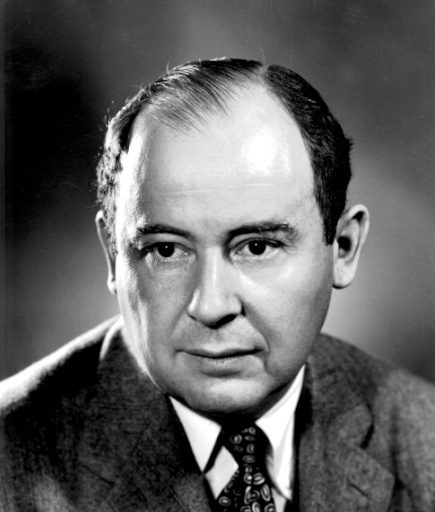
High performers, including those of high intelligence, are used to being right, especially when making judgements in a domain where they have special expertise. In 1943-44, John Mauchly and Presper Eckert, built the ENIAC3 computer at the University of Pennsylvania. It spanned an area of 20 feet × 40 feet with circuitry that incorporated 18,000 vacuum tubes. Mathematician, John von Neumann had modified the ENIAC computer to make it programmable, so Robert Oppenheimer, the Director of the Project, engaged von Neumann to use the computer to calculate the height at which the atomic bomb should be detonated to exact maximum damage. Time was tight and the race to develop the bomb was heating up. “Johnny,” as he was addressed by his friends and colleagues, was revered for his brilliant computing power, and had done the calculations by hand, arguing that the Project could not afford to wait a week or two for the computer to verify his calculations. However, Oppenheimer overruled him, and everyone waited impatiently as the computer chugged through the extensive calculations. It was the middle of the night when the computer yielded its final output. The excited scientists waited until after 10:00 a.m. to telephone von Neumann, to share the good news, because everyone knew that von Neumann was a late sleeper. The conversation is reported to have unfolded something like this:
Von Neumann (sleepily answering the telephone): Johnny here.
Scientist: Dr. von Neumann, the computer has finished its calculations and they verify that your computations are correct!
Von Neumann: You wake me up early in the morning to tell me that I’m right? Please don’t call me when I’m right; call me when I’m wrong! (and hangs up!)
Johnny von Neumann was a gifted mathematician and scientist who, when awakened before noon, could be a cranky person. Though he was almost always correct within his domain of expertise, when outside his field, his judgements were less reliable. After the successful production of the atomic bomb, von Neumann argued that the U.S. should make a preemptive nuclear strike against the USSR. This judgement has been viewed by many historians as politically naîve.
An insidious threat facing those of high intelligence is what Edward de Bono called “the intelligence trap.” Those who have a high IQ are accustomed to being right when most others are wrong–especially in their area of expertise. For this reason, they may tend to dismiss the opinions of others, even when outside their domain of expertise. A high IQ is not a valid substitute for knowledge, and those of high IQ who assume that superiority in their field transfers into areas outside their expertise often override the opinions of others who are more knowledgable. Indian astrophysicist Subrahmanyan Chandrasekhar, who won the Nobel Prize in 1983 described how a scientist may fall into this cognitive trap: ( Quote from Hammond, A. L. 1984. A Passion to Know: Twenty Profiles in Science . New York: Scribner. p.5.)
These people [winners of prestigious awards] imagine afterward that the fact that they succeeded so triumphantly in one area means they have a special way of looking at science that must be right. But science doesn’t permit that. Nature has shown over and over again that the kinds of truth which underlie nature transcend the most powerful minds.
This condition, described by Chandrasekhar, has been facetiously termed, “Nobel’s Disease.” The antidote to this affliction is to achieve the humility that comes from recognizing personal fallibility. Our perceptions and attributions, no matter how intelligent we are, will be wrong on numerous occasions and we must strive to find and correct our misperceptions. This recognition constitutes a major portion of what we call “wisdom.” A brilliant person with a dollop of wisdom can escape “the intelligence trap,” but the habit of trusting one’s own judgment against all others is not always easy for a high performer to suppress.
